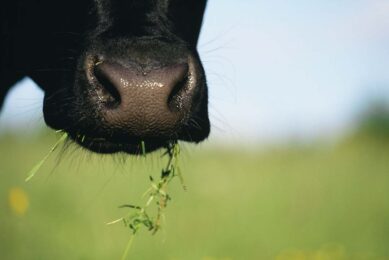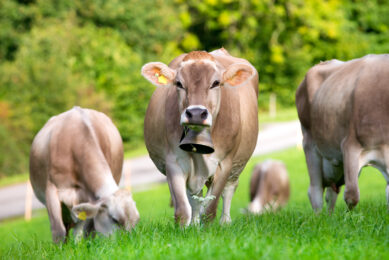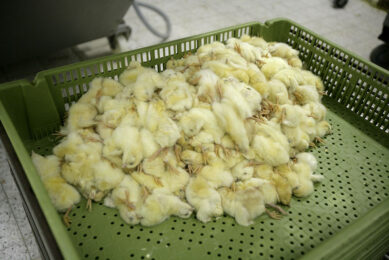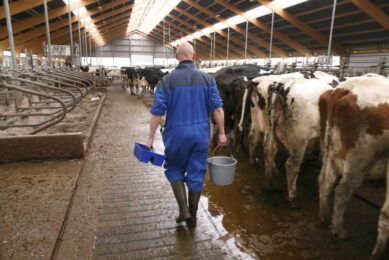Van Leeuwen: Mycoplasma crisis New Zealand is escalating
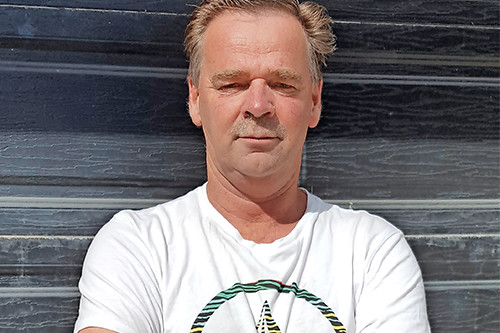
Mycoplasma bovis is spreading at a rapid pace in New Zealand. The government has not controlled the outbreak yet. Aad van Leeuwen’s farm was the first farm that got infected. “There is panic and the government doesn’t know which way to turn,” Van Leeuwen says.
Today, Mycoplasma has been detected at 39 farms. The number of farms in quarantine has increased from 130 to 290 in less than a week. Around 1,700 companies are suspected because they are located close to contaminated farms or because there have been transport movements from the affected farms. The previously planned culling of more than 22,000 dairy cows is halfway. This week, Biosecurity New Zealand discovered a new infected dairy farm at Cambridge in the Waikato region. Inspectors tracked the farm by checking the transport movements of cattle from previously discovered infection areas. After many tests, a positive result came out. According to protocol, the company is now closed. Culling of the cow herd is inevitable.
Animal identification and tracing is not working
Geoff Gwyn, Director of Biosecurity is not surprised about the increase in the number of infected farms. “We found out that there have been a large number of transport movements from the infected farms. Many dairy farms have received cows or calves at their farms from the affected farms. It is disappointing that almost all major dairy areas in the country are now affected by the disease.” New Zealand has a system in which farmers have to keep up with the transport and movement of livestock, National Animal Identification and Tracing (NAIT). The research into the spread of Mycoplasma has shown that this digital bookkeeping system is not kept up to date, which hinders the investigation. The trade of cattle on the black market and the disregard of the rules on the transport of livestock have also spurred the spread of the disease. Jacinda Ardern, Prime Minister of New Zealand addressed during a press conference that neglect and lack of sufficient investment led to the failure of NAIT. The Government is now working hard on plans to stop further spreading of the disease. “We do not give up. We still believe in opportunities for eradicating the disease.”

Mr van Leeuwen: Let farmers solve the problem
The dubious honour to be the first New Zealand farm to be infected was the farm of Van Leeuwen. Aad van Leeuwen (Dutch in origin) has developed his dairy empire over the past decades into a state-of-the-art company, complete with milking robots. He is a well-known person in the Canterbury region on the South Island. He reported the disease to the authorities on July 22, 2017. Meanwhile, his 3 dairy farms and a so-called dry stock farm for cattle have been closed because of the infection. Mr van Leeuwen believes that the government doesn’t know which way to turn. “It has been kept quiet for a while but now it appears that Mycoplasma bovis is prevalent throughout New Zealand. Quite frankly, they simply don’t have it under control.” Mr van Leeuwen: “Half a billion dollars (€290 million) have already been spent on research. However, it takes months before they detect an infection. But it is going fast now. The North Island was still disease-free a month ago. A lot of new infections have now been detected there since.”
Map showing properties under legal controls and surveillance (as of May 10, 2018)
Final claim: €7.5 to €8.1 million
There is a lot of panic, Mr van Leeuwen says. “I still agree you have to leave it to the farmers. There are also more and more votes for that. We do not need the government for that. The 4 contaminated farms of the Van Leeuwen Dairy Group have now been cleaned and are ready for a re-start. The first animals arrived at the beginning of this week. Mr van Leeuwen also received some extra compensation money. “We are now at 50% of the damage for the loss of the cows. We have not received anything yet for the 25% loss of our income. Mr van Leeuwen estimates that his final claim will come to € 7.5 to € 8.1 million. “We have now received a few million dollars (€ 1.16 million). It is not easy to keep everything running but luckily the bank gets a bit more confident. Nevertheless, banks do not lend new money for dairy or other cattle. The beef industry has also been hit hard.”
Reporting the disease: Good or bad thing?
“The other farms of the total 12 farms owned by the Van Leeuwen Group are still under quarantine. “You get isolated and people do not want to do business with you anymore if information about infected farms becomes known. We continue milking but we are not allowed to have new cows on the quarantined farms. I do not know how long that will take. It seems that nobody is able to decide anything.” Looking back, Mr van Leeuwen regrets that he reported the disease to the authorities last July. “That is the biggest mistake I have ever made. I will never do that again. I have no words for what we have experienced since that day. It would have been much easier to cull and bury those 400 cows myself. Then we could have continued. The fact that I look at it this way shows that current policy is not right. If the policy was working then I would have said that reporting the disease was the best thing I could have done”.
Join 13,000+ subscribers
Subscribe to our newsletter to stay updated about all the need-to-know content in the dairy sector, two times a week.




